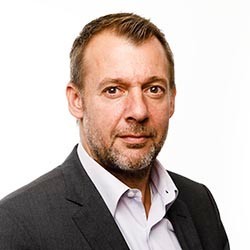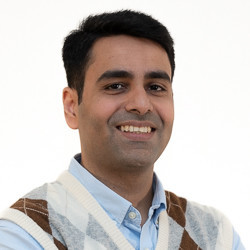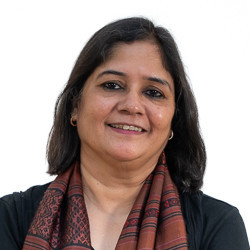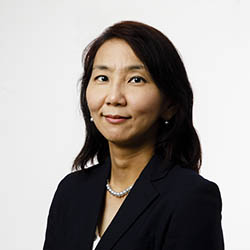India
The Context
India ranks second worldwide in farm outputs. Agriculture employs 42 per cent of India's workforce and contributes 17-18 per cent to the country's GDP.
India is the world’s seventh largest country by land area, and the second most populous country in the world with 1.35 billion inhabitants, 66 per cent of whom still live in rural areas. The rural population is expected to peak around 2030 and then decline.
India ranks as the third biggest economic global power at purchase power parity. The economy is projected to be the fastest growing of all G20 economies. With structural transformation well underway, India’s service sector is the fastest growing part of the economy, contributing 54 per cent of GDP in 2016; industry contributes 30 per cent and agriculture contributes 17 per cent. The long-term prospects for growth are positive, thanks to India’s young population, corresponding low-dependency ratio, healthy savings and investment rates, and increasing integration into the global economy.
Over the last 50 years, India has gone from food aid dependency to becoming a consistent net exporter of food. Food grains and oilseeds still account for almost 80 per cent of crop area, though India has diversified into high value commodities and has become the world's largest producer of milk, pulses, horticulture and livestock as well as the top exporter of shrimp and spices globally. Although most crop yields have at least tripled, they are still relatively low by regional standards. Despite increased area under irrigation, over half of India’s total cropped area and 40 per cent of all crop production are still rainfed and more vulnerable to monsoon variability. Consequently, Indian agriculture is highly vulnerable to climate change. Seasonal water scarcity, rising temperature, more frequent drought risks jeopardize the country’s food security.
Climate change will particularly affect the most vulnerable groups – farmers in rainfed areas, landless labourers and women, whose incomes are likely to reduce by 20-25 per cent (Economic survey 2017/18). Hence, a major challenge for India is to promote the widespread adoption of climate-smart techniques and other adaptation measures that sustain production and productivity, and ensure continued national food and nutritional security.
Although India still has the highest number of poor people in the world, extreme poverty has been substantially reduced. In 2011-12, the overall poverty rate was estimated at 22 per cent, though this figure hides a considerable rural-urban gap (26 per cent vs 14 per cent). Some 80 per cent of 270 million poor people live in rural areas. The rural poor consist of marginal smallholder farmers, the rural landless and many of these will be drawn from scheduled tribes, scheduled castes and other vulnerable groups.
The Strategy
IFAD has been working in India for more than 30 years. The current country strategic opportunities programme is fully aligned with the government’s policy framework of doubling farmers' incomes in real terms by 2022. During the period 2018-2024, IFAD will support the government's efforts in developing necessary services and producers' organizations to render smallholder food and agricultural production systems remunerative, sustainable and resilient to climate change and price shocks.
IFAD works at the grassroots level, targeting the poorest marginal farmers, women, youth, landless people, tribal communities and scheduled castes. Projects have consistently tackled structural issues such as socio-cultural exclusion, lack of access to natural resources, agricultural land and quality public services, as well as market asymmetry and weak bargaining power of smallholder producers.
Over the years, IFAD and the Government of India have achieved significant results investing in the commercialization of smallholder agriculture and building small farmers’ capacity to increase incomes from market opportunities. These projects facilitate innovative partnerships between farmers and private-sector companies. As a result, farmers are acquiring improved technical packages, achieving higher yields, and obtaining better prices for their produce.
IFAD’s focus is on strengthening people’s ability to manage their own development. Its approach features a fully participatory planning and implementation process, reflecting indigenous knowledge and taking into account participants’ capacities and interests. Through IFAD’s investment in grassroots organizations such as self-help groups, and our support for the federation of such groups over time, rural poor people have gained greater bargaining power for access to services, inputs and markets.
Projects empower women to participate in decision-making and resource allocation in rural communities. Women’s groups such as the Courage Brigades (Shaurya Dal) formed to reduce gender-based violence, change social attitudes and enable women to start up small businesses, have proved their effectiveness. IFAD-supported projects have also provided women with access to financial services, such as by linking women’s self-help groups with commercial banks.
IFAD also works with tribal communities, typically located in the most remote, underdeveloped areas of the country. Projects have helped them better their livelihoods by improving their natural resource management, access to land, agricultural production and vocational skills.
Country Facts
With an annual population growth rate of 1.0 per cent, India is projected to grow to about 1.45 billion people by 2025, making it the world’s most populous country.
More than 296 million people in India still live in poverty, accounting for one-third of the world’s poor.
India’s population is composed of thousands of ethnic and tribal groups, speaking over 1,000 languages and belonging to six major religions.



